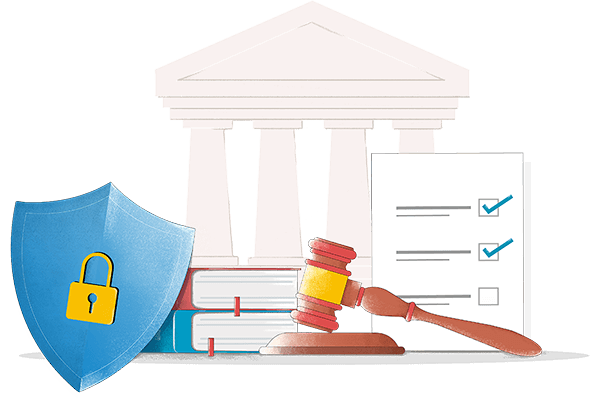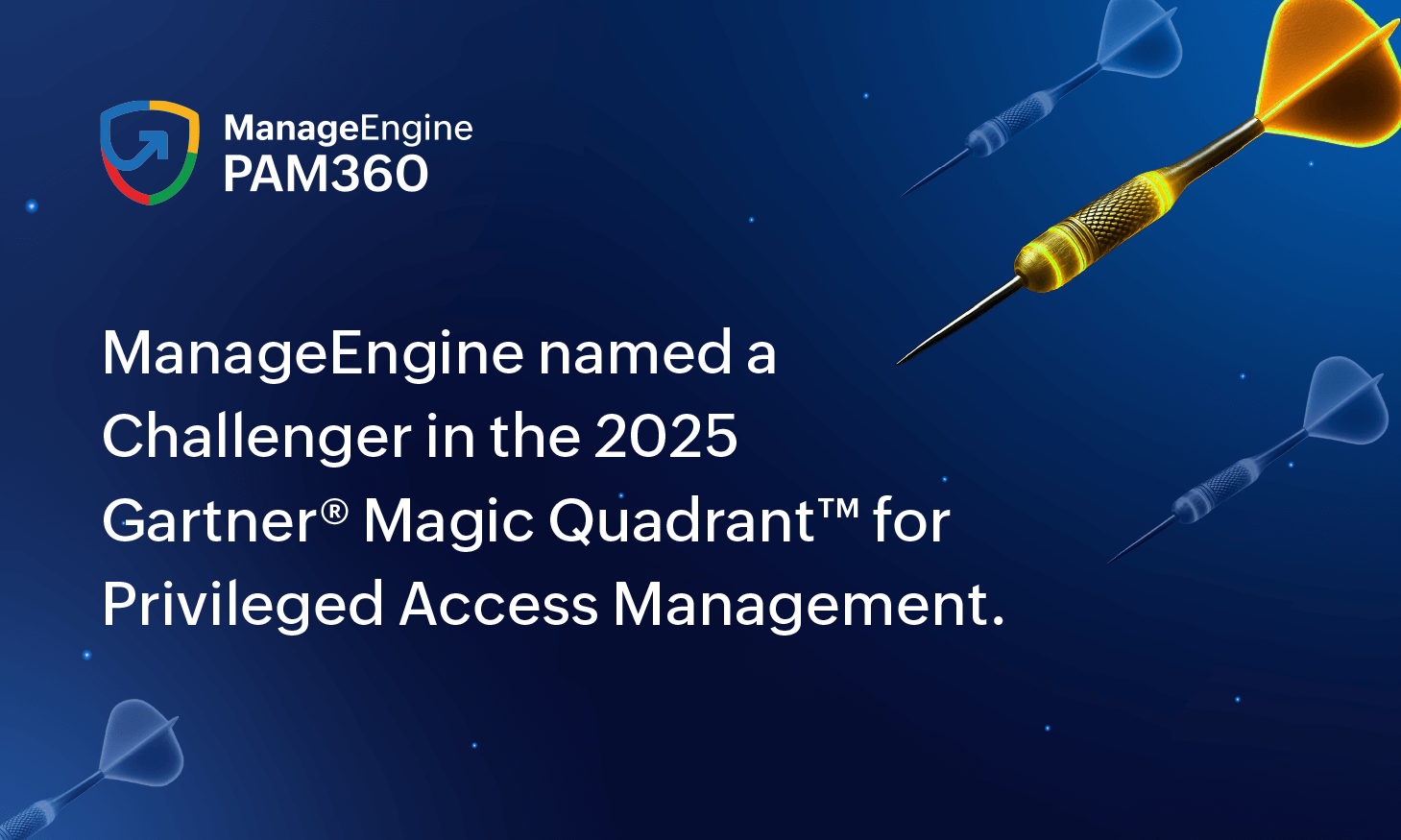GRC-aligned approach to privilege access management
NIS2
NIS2 builds upon its predecessor, the NIS Directive (2016), by expanding its scope and introducing stricter security measures. NIS2 aims to strengthen security requirements, streamline reporting obligations, and enforce stricter supervisory measures. The updated NIS2 Directive is designed to protect critical entities from supply chain vulnerabilities, ransomware attacks, and other cyberthreats more effectively.
How does PAM address the NIS2 requirements?
Privileged access management (PAM) bolsters NIS2 compliance by securing access to critical systems, enforcing least privilege principles, and ensuring that only authorized users can perform sensitive operations. It provides continuous monitoring, auditing of privileged activities, and protection against insider threats and credential misuse. These capabilities align with NIS2’s requirements for robust cybersecurity, effective risk management, and safeguarding essential services and data.
PCI DSS
The Payment Card Industry Data Security Standard (PCI DSS) is a global framework developed by major credit card companies to secure the transfer and handling of payment card data. It is designed to protect cardholder information by establishing specific security requirements. Organizations managing credit card data must adhere to these standards within the cardholder data environment (CDE), encompassing all people, processes, and systems that interact with or influence payment card information
How does PAM address the PCI DSS requirements?
PAM aids in PCI DSS compliance by restricting access to sensitive systems and cardholder data to authorized personnel only. It enforces least privilege, provides secure credential management, and ensures accountability through detailed logging and auditing of privileged activities. These controls align with PCI DSS requirements to protect cardholder data, secure systems, and monitor access to prevent unauthorized actions and data breaches.
HIPAA
The Health Insurance Portability and Accountability Act (HIPAA) of 1996 outlines best practices for managing privileged identities within covered entities or business associates, as defined under HIPAA. In the U.S., healthcare organizations handle ePHI as part of their medical data management.
How does PAM address the HIPAA requirements?
PAM controls play a vital role in the healthcare sector by enabling administrators to manage access to critical patient information securely, ensuring compliance with HIPAA's confidentiality requirements. PAM prevents unauthorized access to sensitive data while providing robust mechanisms to oversee the entire data life cycle, from creation to storage and sharing. By implementing role-based access controls and monitoring privileged access, PAM ensures secure and streamlined management of healthcare information over time.
Essential Eight
The Essential Eight is a set of recommended practices designed primarily for Australian government agencies, but it has been increasingly adopted as a compliance framework by businesses and non-profit organizations in the country. These practices serve as a strong first line of defense against cyberattacks, and when effectively implemented, help organizations reduce their exposure to threats without being burdened by evolving security routines.
How does PAM address the Essential Eight requirements?
Privileged accounts are critical in the Essential Eight framework as they provide elevated access to sensitive systems and data, making them prime targets for cyberattacks. Effective management of these accounts is essential to mitigate risks like unauthorized access, malware execution, and data breaches. PAM controls help by enforcing least privilege principles, implementing MFA, providing just-in-time (JIT) access, strong application control, and offering granular controls to monitor and audit privileged activities.
DORA
The Digital Operational Resilience Act (DORA) (Regulation (EU) 2022/2554 of the European Parliament and Council) seeks to mitigate systemic risks stemming from the extensive interconnectedness of financial entities, markets, and infrastructures, particularly focusing on the interdependencies of their ICT systems.
How does PAM address the DORA requirements?
PAM is vital for financial institutions to comply with DORA, offering centralized control, strong authentication, and session monitoring. Its ability to monitor privileged sessions, detect anomalies, and provide audit trails is essential for demonstrating compliance and protecting against cyberthreats. By implementing PAM, organizations can enhance visibility into privileged access, reduce the risk of unauthorized actions, and ensure compliance with DORA's regulations.
Cyber Essentials
Cyber Essentials UK is a government-backed certification scheme designed to help organizations protect themselves against the most common cyberthreats. It outlines a set of basic security controls that businesses can implement to safeguard their systems and data from cyberattacks. By achieving Cyber Essentials certification, organizations can improve their cybersecurity posture, reduce the risk of data breaches, and demonstrate their commitment to security to customers and stakeholders.
How does PAM address the Cyber Essentials requirements?
Cyberattacks often exploit privileged identities, making robust controls essential. A strong PAM strategy secures credentials, monitors access, and detects vulnerabilities. Aligning PAM with Cyber Essentials standards helps organizations define roles, enforce access controls, and minimize excessive privileges, reducing risks and strengthening overall security.
LGPD
The Lei Geral de Proteção de Dados (LGPD) is Brazil's data protection law, enacted in 2018 and enforced since September 2020. It regulates the processing of personal data, offering protections similar to the EU’s General Data Protection Regulation (GDPR). Similar to the European GDPR, LGPD covers the collection, storage, use, sharing, and disposal of personal data, including sensitive information like racial or ethnic origin, health details, financial data, and biometric data.
How does PAM address the LGPD requirements?
In the context of the LGPD, privileged accounts hold significant importance as they provide elevated access to sensitive personal data, which must be protected to comply with the law's requirements. Unauthorized or improper use of these accounts can lead to data breaches and non-compliance, resulting in hefty fines. PAM helps by restricting and monitoring access to critical systems, enforcing least privilege, implementing MFA, and ensuring audit trails, thus protecting personal data and supporting compliance with LGPD regulations.
SEBI CSCRF
The Cyber Security and Cyber Resilience Framework (CSCRF) by the Securities and Exchange Board of India (SEBI) is a set of guidelines designed to help financial market intermediaries enhance their cybersecurity measures and ensure resilience against cyberthreats. The framework emphasizes the implementation of robust cybersecurity practices, including the protection of critical data, regular security assessments, and timely incident reporting.
How does PAM address the SEBI CSCRF requirements?
By adopting a PAM solution in line with SEBI recommendations, organizations can assess their maturity and determine the level of protection needed for privileged identities. It helps define roles and privileges for financial institution members, enforces access control workflows for privileged access provisioning, and limits excessive privileges to reduce adversary impact. Additionally, PAM logs all activities, providing detailed reports on privileged session actions, enabling a proactive approach to security breaches and enhancing resilience against attacks.
Secure your privileged identities in line with the SEBI CSCRF
CIS Controls
The CIS Controls (Center for Internet Security Controls) are a set of cybersecurity best practices aimed at helping organizations improve security and protect against common cyberthreats. These 18 controls cover areas like inventory management, access control, and monitoring, offering a structured approach to address vulnerabilities and reduce attack surfaces. Implementing them helps organizations manage risks, detect threats early, and strengthen overall cybersecurity defenses.
How does PAM help address the CIS Controls requirements?
PAM is vital in the context of CIS Controls as it enforces access control, least privilege, and monitoring, protecting sensitive systems. By managing and securing privileged accounts, PAM reduces the risk of unauthorized access and potential misuse, aligning with several CIS Controls like controlling access to critical assets, monitoring account activities, and ensuring secure configurations. PAM enhances overall cybersecurity by limiting the attack surface and providing visibility into privileged account actions, which helps organizations detect and respond to threats more effectively.
Explore PAM360's capabilities that align with the CIS Controls
RMiT
The Risk Management in Technology (RMiT) policy was introduced by Bank Negara Malaysia, the central bank of Malaysia, in 2020. It sets out clear guidelines for risk governance, security controls, incident management, and resilience, ensuring organizations adopt effective practices to protect critical systems and data. By adhering to these guidelines, financial institutions can enhance their ability to prevent, detect, and respond to cyberthreats, ensuring greater security and operational resilience.
How does PAM help address the RMiT requirements?
PAM helps address RMiT compliance by ensuring that access to critical systems and sensitive data is tightly controlled and monitored. PAM enforces the granular access controls, granting users only the necessary access for their roles, which reduces the risk of unauthorized access and data breaches. It also supports RMiT's requirements for robust access controls, regular audits, and continuous monitoring of privileged account activities, helping organizations meet security and risk management expectations.
7 PAM features that help you achieve compliance
PAM360's core features help businesses regulate access to sensitive information, maintain data integrity, and thereby comply with various regional and industry regulations. The following features are easy to setup and offer tangible compliance benefits.
- Least privilege access
- Fine-grained access provisioning
- Custom password policies and password rotation
- Remote session monitoring and termination
- Certificate lifecycle management
- Real-time audits
- Ready-made compliance reports
Enforce least privilege
Enterprises must adopt the principle of least privilege to ensure that end users have the lowest access privileges required to perform their tasks. Using PAM360's role-based access controls and just-in-time privilege elevation, you can enforce least privilege access and minimize unauthorized access across every function within your organization. Compliance standards such as GDPR (Article 32), ISO/IEC 27001: 2013 (9.4.1) [old], ISO/IEC 27001: 2022 (A 8.3) [new], and others mandate this requirement to ensure data integrity and confidentiality.
Fine-grained access provisioning
Access control is essential in streamlining access provisioning. PAM360's request-release workflow helps admins grant need-based access to authorized business users for valid tasks. This limits access to mission-critical systems and data, thereby complying with specific access control requirements of standards and regulations such as HIPAA (164.312(a)(1)), ISO/IEC 27001: 2013 (A.9.2) [old], ISO/IEC 27001: 2022 (A 8.2) [new], GLBA (Section 501 b), and PCI-DSS (Requirement 7).
Custom password policies and password rotation
Strict password policies enforce password hygiene across the organization. You can set up password policies that suit your organization's security policies, password reset schedules using PAM360 to stay compliant with standards such as PCI DSS (Requirement 8), and ISO/IEC 27001: 2013 (A.9.3), that require org-wide strong password security measures.
Remote session monitoring and termination
Session monitoring is vital in detecting suspicious activities in real time. With PAM360's extensive privileged session management capabilities, admins can stay on the lookout for anomalous activities as and when they occur, terminate sessions remotely, record every action performed on the endpoints, and more.
Businesses thereby stay compliant with regulations such as HIPAA 164.308(a)(5)(ii)(C), SOX (Section 802 and Section 404), NIST SP 800-53 (AC-20(3)), and PCI-DSS Requirement 10.3 that demand proper session monitoring and recording methodologies.
Certificate lifecycle management
Enterprises manage a vast number of SSL/TLS certificates in their IT environment. If these certificates aren't managed properly or renewed on time, they can cause business outages and cyberthreats. PAM360 offers complete certificate lifecycle management capabilities to help users discover all their certificates, create, renew, and deploy new certificates, generate custom alerts for certificate expiry, and more. By doing so, enterprises can ensure that their critical systems are always encrypted and secure, helping them stay compliant with standards such as HIPAA (164.312(e)(1)), GDPR (Article 32 (1 a)), ISO/IEC 27001: 2013 (10.1.1), ISO/IEC 27001: 2022 (A 8.24) [new], and FedRAMP (AC-16, and AC-17).
Real-time audits
Auditing is a crucial part of privileged access management. PAM360's real-time audits continuously monitor and capture all sensitive activity performed by users. Enterprises can create a new account for auditors and add them to PAM360 as Password Auditors.
Such users receive seamless access to all privileged access audits and reports. Real-time auditing helps businesses stay compliant with SOC 2 (CC6.2:03), ISO 27001:2013 (A.12.4.3), PCI-DSS (Requirement 10.2), and other regulations.
Ready-made compliance reports
PAM360's ready-made reports present an overview of all critical privileged management actions performed by users. As part of this offering, admins can generate dedicated reports for compliance standards like PCI-DSS, ISO-IEC 27001, NERC-CIP, and GDPR in a few clicks. You can find violations if any, and address them instantly.
Apart from the above listed features, PAM360 also offers end-to-end resource and account discovery, secrets management, self-service privilege elevation, application credential management, privileged user behavior analytics, and much more that help meet various compliance needs, and improve your organization's overall security posture.
Enterprise-ready solution, compliant out of the box
Just as with any other solution from ManageEngine, PAM360 is compliant with a wide array of privacy and compliance standards. These accreditations are industry gold-standards that assure you of our approach to privacy and security.
Compliance with other local regulations
PAM360's features help you adopt a compliance-first approach to numerous local compliance regulations. The following standards require enterprises to adopt various privileged access management features to attain compliance:
| Standards and Regulatory Requirements | Subsections or requirements fulfilled | Role of privileged access management solutions |
|---|---|---|
| The Personal Data Protection Act (PDPA) - Singapore | Section 24: Protection of personal data. An organisation must protect personal data in its possession or under its control by making reasonable security arrangements to prevent — | PAM360 can enhance the security of internal systems by safely managing and regulating access to such systems, thereby minimizing unauthorized access to personal data. |
| Protection of Personal Information (APPI) - Japan | Article 20: A business operator handling personal information shall take necessary and proper measures for the prevention of leakage, loss, or damage, and for other security control of the personal data. Article 22: When a business operator handling personal information entrusts an individual or a business operator with the handling of personal data in whole or in part, it shall exercise necessary and appropriate supervision over the trustee to ensure the security control of the entrusted personal data. | By enforcing least privilege with role-based access control and just-in-time privilege elevation, and with privileged session auditing, monitoring, and management capabilities of PAM360, enterprises can prevent unauthorized access to personal data and audit every session launched. |
| Personal Information Protection and Electronic Documents Act (PIPEDA) - Canada | (Principle 4.7.1): The security safeguards shall protect personal information against loss or theft, as well as unauthorized access, disclosure, copying, use, or modification. Organizations shall protect personal information regardless of the format in which it is held. | PAM360's rigorous access control, command control, and remote app access features help protect personal data from unauthorized access by preventing privileged users from running unauthorized commands and by restricting their overall access. |
| Protection of Personal Information Act (POPIA) - South Africa | Section 17: A responsible party must maintain the documentation of all processing operations under its responsibility as referred to in section 14 or 51 of the Promotion of Access to Information Act. Section 19: Security measures on integrity and confidentiality of personal information. The Section 19 requires responsible parties to ensure the integrity and confidentiality of personal information by implementing reasonable technical and organizational measures. Responsible parties must prevent loss, damage, or unauthorized destruction of personal information, as well as unlawful access or processing. This involves identifying risks, establishing safeguards, regularly verifying their effectiveness, and updating them as new risks emerge. Responsible parties should consider accepted security practices and procedures applicable to their industry or profession. | The security and integrity of personal data can be upheld by implementing role-based access control, request-release workflows, and just-in-time access provisioning features offered by PAM360. In addition, PAM360 can also monitor and record all activities performed by privileged users, along with real-time audits that document all the critical actions performed by users and admins. |
This is not an exhaustive list. Using PAM360, you can stay compliant with various local and international regulations.


